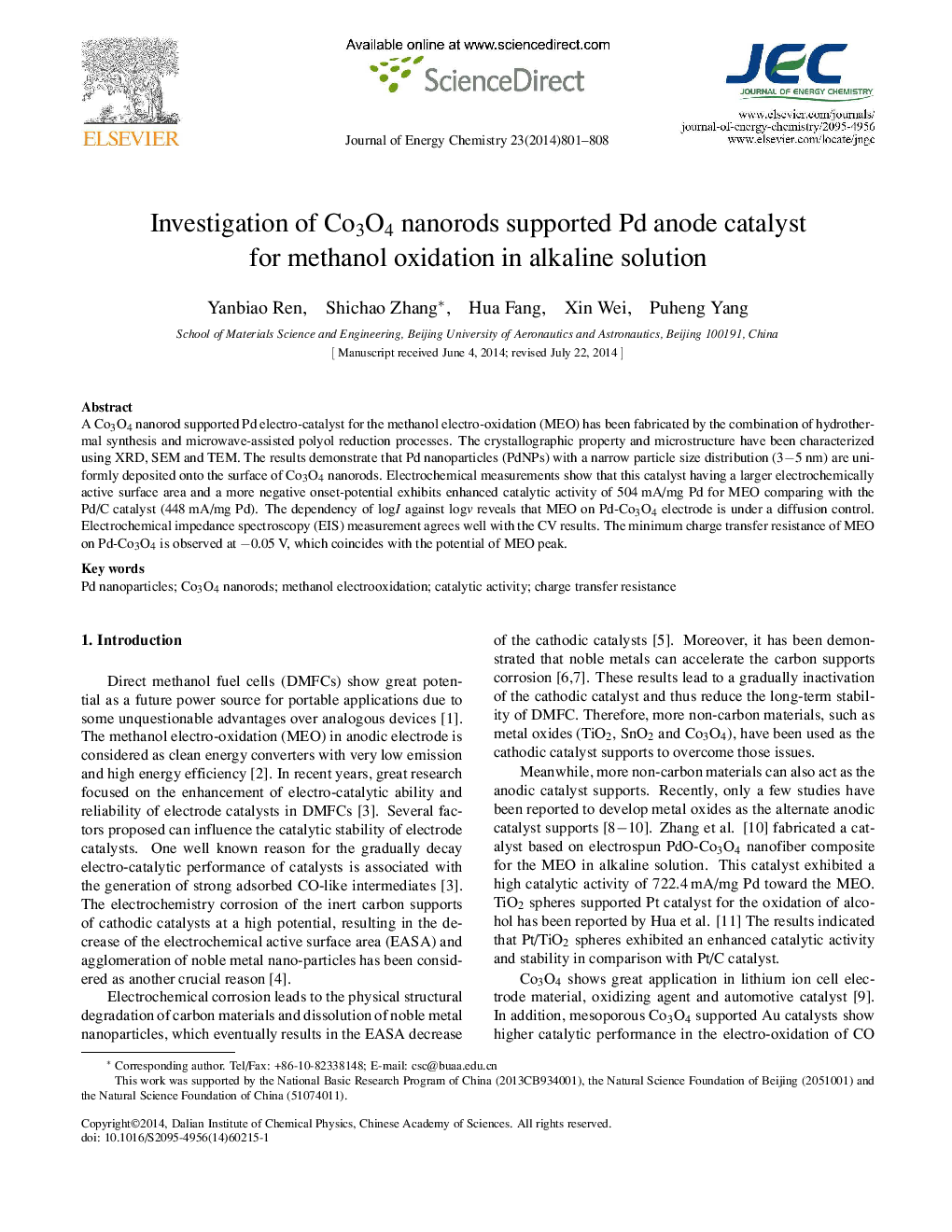| Article ID | Journal | Published Year | Pages | File Type |
|---|---|---|---|---|
| 63952 | Journal of Energy Chemistry | 2014 | 8 Pages |
A Co3O4 nanorod supported Pd electro-catalyst for the methanol electro-oxidation (MEO) has been fabricated by the combination of hydrothermal synthesis and microwave-assisted polyol reduction processes. The crystallographic property and microstructure have been characterized using XRD, SEM and TEM. The results demonstrate that Pd nanoparticles (PdNPs) with a narrow particle size distribution (3–5 nm) are uniformly deposited onto the surface of Co3O4 nanorods. Electrochemical measurements show that this catalyst having a larger electrochemically active surface area and a more negative onset-potential exhibits enhanced catalytic activity of 504 mA/mg Pd for MEO comparing with the Pd/C catalyst (448 mA/mg Pd). The dependency of logI against logv reveals that MEO on Pd-Co3O4 electrode is under a diffusion control. Electrochemical impedance spectroscopy (EIS) measurement agrees well with the CV results. The minimum charge transfer resistance of MEO on Pd-Co3O4 is observed at −0.05 V, which coincides with the potential of MEO peak.
Co3O4 nanorods supported Pd nanoparticles electro-catalyst has been successfully fabricated. The kinetics of MEO on the as-prepared catalysts and electrochemical impedance spectroscopy measurements were analyzed.Figure optionsDownload full-size imageDownload as PowerPoint slide
